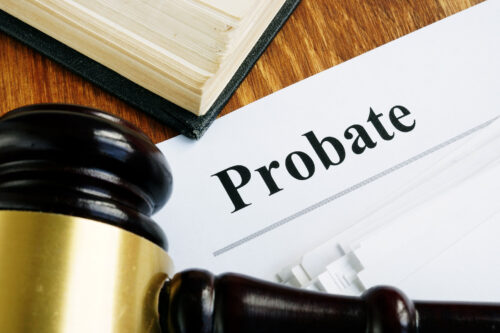Proper Estate Planning Can Save Time, Money, And Heartache
Estate planning is more than simply creating a Will or Trust. It is organizing and coordinating the ownership and distribution of your assets so that your wishes regarding the distribution of your property will be accomplished. An estate plan may include the use of a Will or a Trust and should always involve a thorough review of a person’s assets, ownership of those assets, and any beneficiary designations.
Estate Documents
Will
A Will is a written document that provides for the disposition of a person’s property when he/she dies. To be valid, the person executing the Will must be of sound mind, not subject to undue influence, and witnessed by two adult people.
Revocable Trust
A Revocable Trust is another estate planning tool. It is a document created during life for the purpose of holding title to property. The assets in the trust are managed and distributed in accordance with the client’s wishes as outlined in the Trust Agreement. A client who is elderly or inexperienced in the management of property may desire Trust management during his/her lifetime. The Trust may also reduce probate costs, eliminate the need for guardianship in the event of disability, and provide confidentiality since the Trust does not become public record. Contrary to common belief, a Revocable Trust does not avoid estate taxes or protect assets from being used for nursing home care.
Tax Law
Estate Tax
An estate tax is a tax imposed on the right to transfer property at death. However, a tax credit is available to reduce or eliminate the tax. The federal estate tax exemption is $12.92 million, indexed for inflation. Minnesota’s credit is $3 million. Due to the difference in the credit exemptions, many estates are required to file a Minnesota estate tax return (Form M-706) but not a federal estate tax return (Form 706). There are ways to eliminate or minimize estate tax. Property passing between spouses or to a qualified charity is not subject to estate tax. With proper planning, parents may be able to double the size of inheritance left to their children without the imposition of estate tax.
Gift Tax
The gift tax annual exclusion is $17,000 per person per year. Any gift in excess of that amount requires the donor (giver) to file a gift tax return (Form 709). By executing appropriate consents on the gift tax return, a husband and wife may elect to have their gifts treated as made by one-half by each. This means that a married client making gifts with a spouses’ consent may make annual gifts of $28,000 per donee (recipient) per year without having to file a gift tax return. The annual exclusion amount is adjusted each year by inflation. Minnesota does not have a gift tax.
Distribution Of Your Estate
Probate
Probate is the legal process by which title to your property is transferred through the court system. Only assets that are owned individually are subject to probate. If you have a Will, the Will is the governing document regarding the distribution of your property. If you die intestate (without a Will) the laws of the state of Minnesota govern the distribution of your estate.
Court Administration
The probate court is involved in varying degrees depending on the type of probate proceeding the personal representative selects. An informal probate proceeding does not require appearances before the probate court or an accounting of the estate’s activities. An informal proceeding is often selected when the estate is liquid and there are no issues in dispute. A formal probate proceeding is used when the heirs wish the have the court make determinations or supervise the management of the estate. Most estates can be closed within six months of opening unless an estate tax return is required to be filed.
Non-Probate
There are a variety of techniques available to eliminate the need to probate an estate. Assets that are controlled by the terms of a contract, such as a life insurance policy or IRA naming a beneficiary pass without probate court involvement. Property held as joint tenants is non-probate because the surviving tenant becomes the owner of the property by operation of law. However, avoiding probate does not mean a descendant avoids estate taxes. Whether property is subject to estate tax is determined by the decedent’s ownership interest in the property at the time of death.
Other Issues
Health Care Directive
Every thorough estate plan should also include the preparation of a Health Care Directive (HCD). A HCD is a written statement to your doctor and family setting forth your instructions regarding the medical treatment you wish to receive when you are incapacitated due to health reasons, or terminally ill. It can include (a) the designation of an attorney-in-fact to make health care decisions for you, (b) provide specific instructions if you are unable to communication them yourself, or (c) both.
Power of Attorney
A Durable Power of Attorney (POA) is a written instrument that nominates a person or institution to be your Attorney-in Fact (AIF). The AIF is authorized to handle your financial affairs in the event of your incapacity. The AIF is often a spouse or adult child. Upon death, the POA terminates. A POA may eliminate the need for a court-supervised conservatorship.
This webpage contains general information and not legal advice. It is based on Minnesota law in effect at the time of writing. An attorney at Farrish Johnson can advise you about how the law applies to your specific situation.










